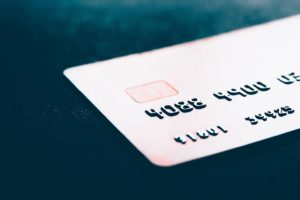Dear Liz: I am an 80-year-old female in generally good health. My only family is my unmarried 54-year-old son. The only debt I have is credit card debt of about $30,000 at 0% interest. It’s in my name alone. My house and car have been registered with “transfer on death” designations. My son’s name is on my modest checking account. When I die, is there a legal situation where he would be required to pay the credit card debt? There will be no probate.
Answer: Credit card debt doesn’t just disappear when you die. The debt would become the responsibility of your estate. Transfer-on-death options avoid probate, the court process that otherwise follows death, but creditors can still go after the property that’s been transferred.
Depending on state law, creditors may have longer to make their claims than if your estate had gone through probate or if you had used a living trust, says Jennifer Sawday, an estate planning attorney in Long Beach.
That’s among the reasons why transfer-on-death designations may not be the best solution. Consider making an appointment with an estate planning attorney to discuss your situation and possible alternatives.
Also, your 0% interest rate is temporary. Once the current teaser rate ends, you’ll likely pay a much higher interest rate and your monthly payments could jump. If you can pay off this debt, that’s probably the best course. If you can’t, you may want to discuss your situation with a bankruptcy attorney.
 This week’s top story: The home and auto insurance crisis and how to keep your coverage. In other news: 5 options if you’re crushed by student loan and credit card debt, why Delta’s elite status changes matter, and 8 Latino financial influencers to follow in 2023.
This week’s top story: The home and auto insurance crisis and how to keep your coverage. In other news: 5 options if you’re crushed by student loan and credit card debt, why Delta’s elite status changes matter, and 8 Latino financial influencers to follow in 2023. Today’s top story: Credit card debt has dropped, but inflation may change that. Also in the news: How to make summer 2022 travel plans that actually happen, how the end of the mask mandate could increase travel costs, and how much house you can get for $350K.
Today’s top story: Credit card debt has dropped, but inflation may change that. Also in the news: How to make summer 2022 travel plans that actually happen, how the end of the mask mandate could increase travel costs, and how much house you can get for $350K. Today’s top story: Flying is likely the cheapest option for spring and summer trips. Also in the news: 8 tactics to break credit card debt cycles, dealing with bank mergers, and negotiating COVID-19 medical bills.
Today’s top story: Flying is likely the cheapest option for spring and summer trips. Also in the news: 8 tactics to break credit card debt cycles, dealing with bank mergers, and negotiating COVID-19 medical bills.  Today’s top story: 3 tasks for new retirees that will pay off later. Also in the news: Credit card interest vs. buy now, pay later, forget the fed, pay off your credit card debt, and cities where it’s cheaper to buy than rent.
Today’s top story: 3 tasks for new retirees that will pay off later. Also in the news: Credit card interest vs. buy now, pay later, forget the fed, pay off your credit card debt, and cities where it’s cheaper to buy than rent. Today’s top story: When it’s OK to let your good credit score drop. Also in the news: A new episode of the Smart Money podcast on crypto credit cards and short-term investing, why balance transfer cards are starting to make a comeback, and how a 24-year-old crushed $20K+ in credit card debt.
Today’s top story: When it’s OK to let your good credit score drop. Also in the news: A new episode of the Smart Money podcast on crypto credit cards and short-term investing, why balance transfer cards are starting to make a comeback, and how a 24-year-old crushed $20K+ in credit card debt.